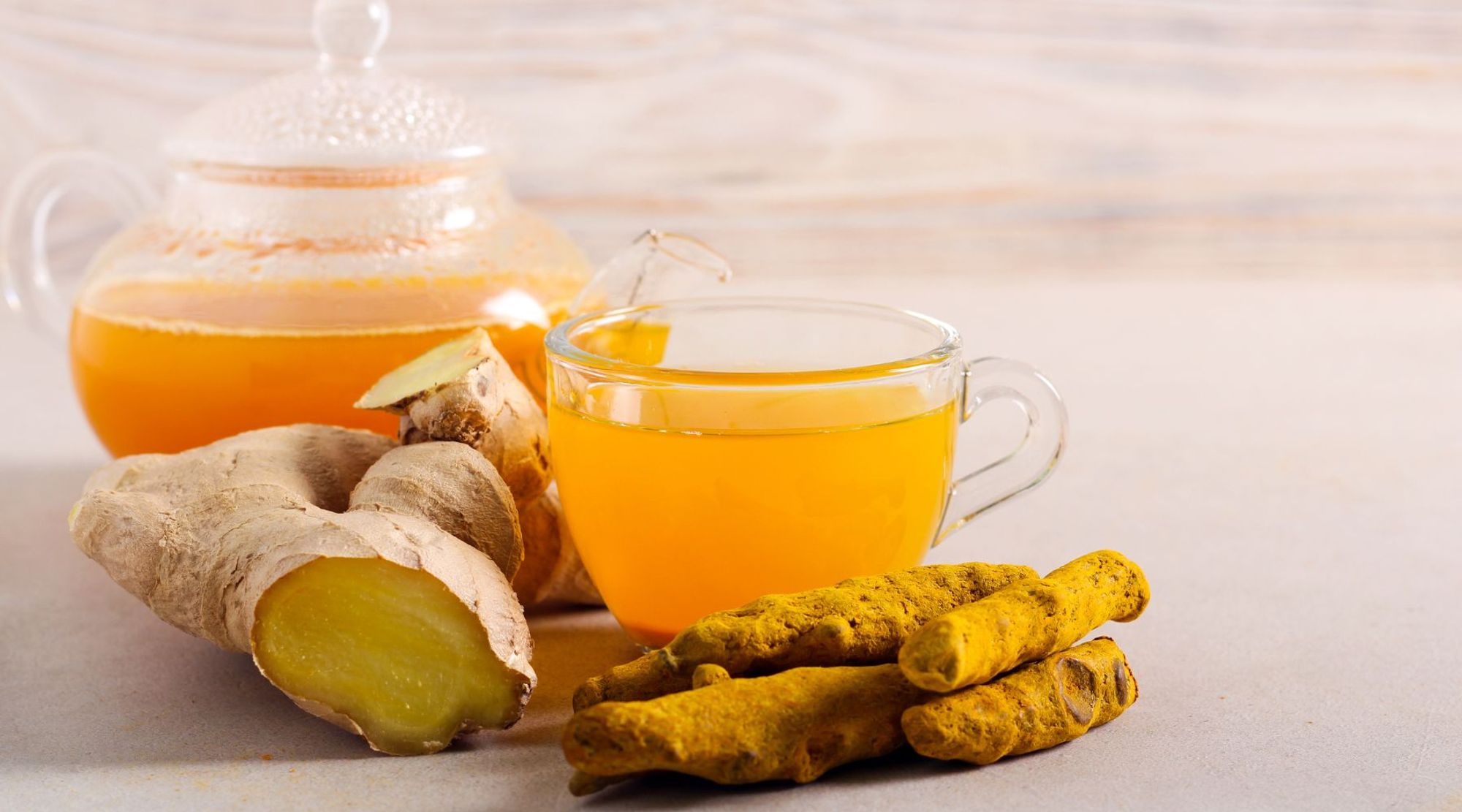
Benefits of Drinking Tea: Why Your Daily Cup is More Than Just a Drink
We all know that feeling – curling up with a warm cup of tea after a long day, the steam rising up to greet your senses, and the rich, comforting aroma wrapping around you like a cozy blanket. It’s more than just a beverage; it’s an experience. But did you know that your favorite cup of tea is also a powerhouse of health benefits? From boosting your mood to improving your overall wellness, tea offers a whole lot more than just comfort.
A Quick Sip into the World of Tea
Before we jump into the wonderful benefits of drinking tea, let's take a moment to understand what tea actually is. Tea is a beverage made by steeping the leaves of the Camellia sinensis plant in hot water. Depending on how the leaves are processed, you get different types of tea, like green, black, white, oolong, and pu-erh. Each type of tea has its own unique flavor profile and health benefits, but they all share some common qualities that make tea a fantastic addition to your daily routine.
1. Boosts Mental Alertness and Focus
If you’re feeling a bit foggy or need a quick pick-me-up, a cup of tea might be just what the doctor ordered. Tea, particularly green and black varieties, contains a moderate amount of caffeine, which can help improve mental alertness and concentration. But unlike coffee, which can sometimes leave you feeling jittery, tea contains an amino acid called L-theanine. This amazing compound works hand-in-hand with caffeine to enhance focus and alertness while promoting a calm and relaxed state. So, you get the best of both worlds – a gentle boost without the jitters!
2. Packed with Antioxidants
One of the biggest benefits of drinking tea is its high antioxidant content. Antioxidants are like the superheroes of your body, fighting off free radicals that can damage cells and contribute to aging and diseases like cancer. Different types of tea contain different antioxidants. For example, green tea is rich in catechins, while black tea is full of theaflavins and thearubigins. All of these antioxidants help protect your body from damage, keeping you healthy and vibrant.
3. Supports Heart Health
Tea is like a hug for your heart. Research has shown that regularly drinking tea, especially green tea, can help lower LDL cholesterol (the "bad" cholesterol) and triglycerides while improving HDL cholesterol (the "good" cholesterol). This, in turn, helps reduce the risk of heart disease and stroke. Plus, the antioxidants in tea can help improve blood vessel function and reduce inflammation, both of which are key to maintaining a healthy heart. So, the next time you enjoy a cup of tea, remember you’re also giving your heart a little love.
4. Aids in Weight Management
Trying to shed a few kilos? Tea can be a helpful companion on your weight loss journey. Certain types of tea, like green tea and oolong tea, have been shown to boost metabolism and increase fat burning, especially when combined with regular exercise and a healthy diet. The caffeine and catechins found in these teas can help enhance fat oxidation and improve overall calorie burn. And because tea is naturally low in calories (as long as you skip the sugar and cream), it’s a great alternative to sugary drinks.
5. Promotes Digestive Health
Tea can do wonders for your digestive system, too! Herbal teas like peppermint and ginger are known for their soothing properties and can help alleviate digestive issues like bloating, gas, and nausea. Green tea and black tea, on the other hand, contain compounds that can promote the growth of good bacteria in your gut, improving digestion and overall gut health. So, whether you’re dealing with an upset stomach or just want to keep your digestion on track, there’s a tea out there for you.
6. Reduces Stress and Promotes Relaxation
In today’s fast-paced world, finding ways to relax and unwind is more important than ever. And tea can be a great part of your stress-relief toolkit. The ritual of brewing and sipping tea itself can be incredibly calming, providing a moment of mindfulness and relaxation. Additionally, certain teas, like chamomile and lavender, have natural calming effects that can help reduce stress and anxiety, promoting a sense of peace and well-being. So, the next time you’re feeling frazzled, take a tea break and let the soothing effects wash over you.
7. Supports Immune Function
No one likes being sick, and thankfully, drinking tea can help keep those pesky colds and flu at bay. Tea is packed with vitamins, minerals, and antioxidants that can help support a healthy immune system. Green tea, in particular, contains a powerful antioxidant called EGCG (epigallocatechin gallate), which has been shown to enhance immune function and protect against infections. Herbal teas like echinacea and elderberry are also popular for their immune-boosting properties. So, keep sipping tea to keep your immune system strong and resilient.
8. Improves Skin Health
Want to glow from the inside out? Tea can help with that too! The antioxidants in tea help protect your skin from damage caused by free radicals and UV radiation, which can lead to premature aging and wrinkles. Green tea, in particular, has been shown to improve skin elasticity and reduce inflammation, giving you a more youthful and radiant complexion. Plus, drinking tea can help keep your skin hydrated, especially if you opt for caffeine-free herbal teas like rooibos or chamomile. So, go ahead and sip your way to healthier, more beautiful skin.
9. May Help Manage Blood Sugar Levels
If you’re concerned about blood sugar levels, tea might be a helpful addition to your diet. Studies have shown that green tea and black tea may help improve insulin sensitivity and reduce blood sugar levels, which is beneficial for people with type 2 diabetes or those at risk of developing the condition. Herbal teas like cinnamon and ginger can also help regulate blood sugar levels by improving insulin function and reducing inflammation. So, drinking tea regularly might help you keep your blood sugar in check.
10. Supports Oral Health
Surprise! Tea is also great for your teeth and gums. The polyphenols found in tea, particularly green and black tea, have antibacterial properties that can help reduce the growth of bacteria in your mouth, leading to better oral health. These compounds can also help prevent cavities, reduce bad breath, and improve overall gum health. Just be sure to drink your tea without added sugars, as sugar can negate these benefits and contribute to tooth decay.
Tips for Maximizing the Benefits of Drinking Tea
Now that you’re all excited about the many benefits of drinking tea, here are some tips to help you get the most out of every cup:
- Choose High-Quality Tea: Opt for loose-leaf tea or high-quality tea bags to ensure you’re getting the best flavor and health benefits. Lower-quality teas may contain fewer beneficial compounds and can sometimes be contaminated with pesticides or other chemicals.
- Brew It Right: Follow the brewing instructions for each type of tea to get the most out of it. Over-steeping can lead to a bitter taste, while under-steeping may not release all the beneficial compounds.
- Avoid Adding Too Much Sugar: While a little honey or sugar can make your tea more enjoyable, try to avoid adding too much. Excess sugar can add empty calories and negate some of the health benefits of tea.
- Experiment with Different Types of Tea: Don’t be afraid to try different types of tea to find your favorites. Each type has its own unique flavor and health benefits, so mix it up and enjoy the variety!
- Stay Consistent: Drinking tea regularly is key to reaping its benefits. Try to make tea a daily habit, whether it’s a morning cup of green tea, an afternoon pick-me-up with black tea, or a calming herbal tea before bed.
FAQs About the Benefits of Drinking Tea
Q: How much tea should I drink to enjoy its health benefits?
A: Generally, 2-3 cups of tea per day are enough to enjoy its health benefits. However, this can vary depending on your personal preferences, health status, and caffeine tolerance. Always listen to your body and adjust your tea intake accordingly.
Q: Can I drink tea if I’m sensitive to caffeine?
A: Absolutely! If you’re sensitive to caffeine, you can opt for decaffeinated teas or herbal teas, which are naturally caffeine-free. Herbal teas like chamomile, peppermint, and rooibos offer a variety of health benefits without the caffeine.
Q: Does tea have any side effects?
A: While tea is generally safe for most people, it can cause some side effects if consumed in large amounts or if you’re sensitive to certain compounds. Too much caffeine, for example, can lead to insomnia, anxiety, or an upset stomach. If you have any health concerns or are taking medication, it’s always a good idea to consult with your healthcare provider before adding new teas to your routine.
Conclusion
Tea is so much more than just a comforting drink – it’s a treasure trove of health benefits that can improve your well-being in countless ways. From boosting mental alertness and supporting heart health to aiding in weight management and promoting relaxation, there’s a tea out there for everyone. So, go ahead and explore the wonderful world of tea, sip by sip, and enjoy all the amazing benefits it has to offer. Cheers to your health!


